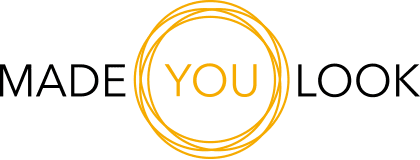
Consumers have become aware of how their choices impact the environment around them and in all corners of the world. They seek to make more ethical choices in all kinds of purchases, which extends to jewelry.
When buying your engagement ring in Toronto, many consumers want to know that the diamond they purchase to symbolize their love and commitment to their partner is an ethical diamond.
If you’re looking into engagement rings or other diamond jewelry and wondering whether diamonds are ethical, you’re in luck. Made You Look is one of the Toronto jewelry stores that makes it a priority to know where our diamonds come from. We’ve put together this post to tell you everything you need to know about ethical diamonds and ethical diamond alternatives.
Now that we know that ethical diamonds are an option, let’s look at where to buy ethical diamonds and how to buy ethical diamonds.
Ethical Diamonds
What are ethical diamonds? Typically, people looking for ethical diamonds want to know there are no humanitarian issues in how the diamonds are mined or transported. Extending that definition even further, as many consumers are focused on making energy efficient decisions, it’s also important that diamonds be collected in a sustainable and environmentally conscious way.
Kimberley Process
Diamonds are highly regulated by several different regulatory bodies, which means they are often a much safer, more ethical choice than many coloured gemstones.
One of those regulatory bodies is the Kimberley Process. This international law tracks diamonds along their journey, from when they are mined to when they’re sitting in a jewelry store. This process unites administrations, civil societies and industry to reduce the flow of conflict diamonds and ensures a diamond is conflict-free. Every diamond sourced by Made You Look is in accordance with the Kimberley Process.
Canadian Diamonds
A great way to make more ethical and sustainable choices is to go local. Canadian diamonds are conflict free and are mined under Natural Resources Canada and their Green Mining Initiative, which regulates greener mining practices. These regulations include minimizing and managing waste from mines, improving water conservation efforts, using cleaner vehicles, and flora and fauna restoration. These initiatives, along with higher wages for miners, mean that diamonds mined in Canada are more expensive.
Repurposed Diamond Jewelry
Another option when looking for ethical diamonds is to use an existing one. Vintage is popular when it comes to décor, furniture, artwork, clothing, and even jewelry. Reusing a diamond from an old piece of jewelry or family heirloom is a wonderful way to make an ethical diamond ring. If you want to reuse an old diamond but don’t love the setting it is in, or you are dreaming of a ring that speaks to your personal style, simply contact a jewelry store like Made You Look to talk about your options for repurposing your old jewelry to make a new sustainable and ethical diamond ring.
Are Lab Grown Diamonds Ethical?
The question comes up a lot: are lab diamonds more ethical than natural diamonds? If you do a quick Google search and glance at the results, it will probably seem like lab grown diamonds are the more ethical diamonds. But if you dig a little deeper, you will find that there’s little data available to back that claim up. We simply don’t have the data to compare natural and lab grown diamonds to determine which one is the more ethical diamond, but there are some critical factors to keep in mind.
Lab grown diamonds mimic the process which forms diamonds naturally in the Earth’s mantle over millions or billions of years with temperatures of at least 2000 degrees Fahrenheit and intense pressures.
To mimic this process in a laboratory in a couple of weeks requires a lot of energy. Unfortunately, there is a lack of transparency when it comes to exactly how much energy is used to make a lab grown diamond, so it’s impossible to ascertain whether they are or aren’t more ethical than natural diamonds. In fact, the United States’ Federal trade Commission recently put out a warning about unsubstantiated claims that some lab grown diamond makers were making regarding the environmental benefits of their diamonds.
Ethical Diamond Alternatives
It’s great for customers to have so many excellent ethical diamond choices to choose from, but what about those who don’t want a diamond engagement ring? Are there ethical alternatives to diamonds? When looking at alternatives to diamonds that are also ethical, one of the top gemstones that comes to mind is moissanite.
Moissanite has been growing in popularity because it is seen as a more affordable option, and it has a brilliance and lustre that is similar to, yet distinct from, diamonds. It ranks at a 9.5 on the Mohs Scale of Hardness, meaning moissanite rings are suitable for daily wear and more resistant to scratches than many other diamond alternatives.
Moissanite is a lab made stone, but where it differs from lab grown diamonds is in the process used to make them. Moissanite doesn’t need the same high heat and pressure that lab grown diamonds need. Moissanite is formed naturally, but it is extremely rare, so it’s much more common to be generated in a lab, a process that was developed in 1995.
At Made You Look, we love helping customers find the perfect piece of jewelry that speaks to them, whether that is the perfect ethical diamond ring or getting a permanent bracelet in Toronto with a friend or family member. If you want to know more about ethical diamonds or anything else jewelry related, give us a call or stop by our shop.
